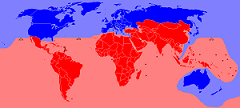 I have always been fascinated by the Sun, this big star at the centre of our galaxy on which the existence of the human race is dependent. It is no wonder the early religious worshipped and gave reverence to it because of the many blessings they believed it showered on them. We are still bewildered by the miracles of the sun.
I have always been fascinated by the Sun, this big star at the centre of our galaxy on which the existence of the human race is dependent. It is no wonder the early religious worshipped and gave reverence to it because of the many blessings they believed it showered on them. We are still bewildered by the miracles of the sun.
It is the most fundamental source of energy. It is because of it, scientist believe the first simple lives evolved—those single celled photosynthetic organism sprang up, the trees came, the whales, the pigs, the Neanderthals and then finally our race, the Homo sapiens. Almost at every point in our history we keep discovering new organisms. This is always a reminder that we are strangers on this interesting planet.
One is always guided by the fact that not every faction in our society believes in these assertions of scientists, but that is what makes the human story intriguing. We are a bunch of confused species who are always asking questions about why we are here. What if we know all the answers?
The scientist is a bit at peace when she/he attribute the beginning to the big bang theory, but the Christian or Muslim, to creation. We can even get ourselves more wound up by asking about the series of events that happened before the big bang or creation.
I was baffled by the emotions that was pouring out of my students when we were looking at the fate of the Sun. After showing a simulation of what scientists believe is the eventual destiny of Sun, some of them were almost moved to tears. The Sun kept expanding, burning out all the hydrogen in it. At some point the pressure from within could not nullify its weight and so it imploded, engulfing most of the closer planets; Mercury, Venus, and our very own Earth. The class was absolutely silent and one could hear a pin drop. Suddenly one student raised up the hand and asked, '' So Sir are we going to die?''. She sounded alarmed and worried. In my attempt to quell the gloomy atmosphere I told her the Sun is not going to die in our lifetime but it is estimated possibly in the next 5 billion years. Now, I wished I could foretell the series of questions I was going to be bombarded with. '' Why don't we go to a different planet’’? '' We can build shields to control the radiations'', etc. To be sincere I was totally lost as to what answers I should give. What was revealing was how this god we all admired was all of a sudden despised. The expressions on them was that of loathing and hatred. It dawned on me the inherent fault in our Sun.
In Ian Morrison's Why the West rules for now, he makes a case about how people who live north of the equator are tended to be more proactive than those in the South. A contentious argument to make but I thought it still raised some interesting issues. So should someone who lives in Africa attribute their abysmal development to the Sun? Because they wake up to a bright sunny day all the time, they feel jolly, not in the mood for work but to bask in the sun, play draught under the mango tree and hope that by some act of miracle, food will be provided in the evening.
Those in the North are caught up mostly in these very cold weather and therefore have to think very quickly otherwise they are going to die of cold.
Again our Sun is blamed to have contributed to how our human history in terms of development has played out.
So it wasn't about colour all this while but a combination of the game of natural selection and the Sun.
By David Mensah
CEO Adwempa Foundation.

